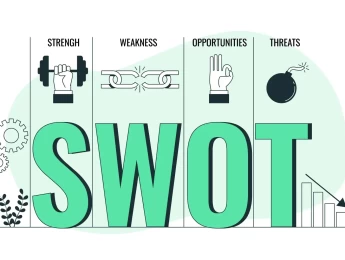Project management is crucial within construction. Without in-depth management, construction projects can be highly unreliable and potentially extremely dangerous to those involved.
Engineering, Procurement, Construction, Installation, and Commissioning (EPCIC) contracts are the most common contracts used within construction, and rightfully so. These contracts provide a detailed outline of the steps to take during projects and are ideal for more complex projects. EPCIC contracts are an essential tool in driving efficient contracting, that will prioritise productivity without compromising health and safety.
Project managers will oversee projects and ensure that they function in alignment with EPCIC from start to finish. They will also make decisions, control project areas, maintain safety, and encourage employees to work to ideal industry standards. Being competent in these skills and others will be vital in seeing a project through to completion.
Upon completion of this course, participants will be able to:
- Describe key terms relating to project management.
- Be proficient at using vital project management processes.
- Explain what EPCIC is and what its role is in project management.
- Produce crucial project management documents.
- Define project outcomes aligned with customer and employee needs.
- Review the core principles of project delivery.
- Identify the eight stages of the delivery process.
- Explain what tasks are completed at each project stage.
- Recognise the importance of commissioning, training, and asset documentation.
- Detail the key components of construction contracts and what constitutes good contract administration.
This course is designed for anyone who works in construction project management and strongly focuses on EPCIC. It would be most beneficial for:
- Civil Engineers
- Construction Managers
- Quality Surveyors
- Project Engineers
- Architects
- Planning Supervisors
- Cost and Planning Managers
- Liaison Officers
- Site Supervisors
- Building Surveyors
This course uses a variety of adult learning styles to aid full understanding and comprehension. Participants will review real-world documents relating to project management, such as risk assessments, checklists, contracts, and quality reports, to highlight key information that must be included.
They will be provided with the best tools in the industry to effectively analyse their examples and conduct learning exercises to identify where mistakes may have risen, and what steps could be taken to resolve them. In group practical activities, participants will work together to create their own project plans in line with an EPCIC contract and include their own risk and value management plans.
Day 5 of each course is reserved for a Q&A session, which may occur off-site. For 10-day courses, this also applies to day 10
Section 1: Introduction and Overview
- Project management definitions.
- Characteristics of construction and project management.
- Introduction to the eight stages of project management.
- Comparing different Codes of Practice – CIOB COP, BIM Plan of work, PMI BOK
- Key decisions, processes, objectives, deliverables, and resources.
- Introduction to EPCIC.
Section 2: Interception Stage
- Stage checklists, process, outcomes, and client objectives.
- The internal team and project manager.
- Identifying project needs.
- Project, environmental, and BIM mandates.
- Establishing EPCIC contracts.
Section 3: Feasibility
- Outline project brief.
- The importance of feasibility studies.
- Procurement route.
- Maintaining sustainability through the project life-cycle.
- Gaining approval to proceed.
- Funding and investment appraisal.
- Stakeholder identification.
Section 4: Strategy Stage
- Project and design brief.
- Development planning and control.
- Conducting risk assessments and audits.
- Cost and planning control.
- Project governance and selecting the project team.
- Change and design management process.
Section 5: Pre-Construction Stage
- Complying with environmental regulations.
- Stakeholder management and communication.
- Maintaining quality throughout.
- Commissioning and Procurement Strategies.
- Employer’s requirements document.
- Establishing a detailed project execution plan.
- BIM strategy.
- Change and variation control.
Section 6: Managing Pre-Construction
- Frequent review of stage checklists, processes, and outcomes.
- Managing the development of the design.
- Value management and engineering.
- Procuring the supply chain, including tenders.
- EPCIC contract reward and contractual arrangements.
- Control, monitoring, and reporting systems.
Section 7: Construction
- Project team duties and responsibilities.
- Performance monitoring and reporting.
- Public liaison upkeep.
- Resolving potential disputes to maintain efficiency.
- Updating the risk management plans.
- Quality management – inspection and snagging.
Section 8: Testing and Commissioning
- Procuring commission services.
- Testing and commission process and programming.
- Reviewing commissioning documentation – Q&M manuals, As-Built drawings, H&S files, and Building Owner’s and Occupier’s handbooks.
Section 9: Completion, Hand-Over, and Post-Completion Review
- Planning and scheduling handover.
- Practical completion and handover procedures.
- Project audit and performance studies.
- Post-occupancy evaluation.
- Project feedback and close-out reports.
Upon successful completion of this training course, delegates will be awarded a Holistique Training Certificate of Completion. For those who attend and complete the online training course, a Holistique Training e-Certificate will be provided.
Holistique Training Certificates are accredited by the British Assessment Council (BAC) and The CPD Certification Service (CPD), and are certified under ISO 9001, ISO 21001, and ISO 29993 standards.
CPD credits for this course are granted by our Certificates and will be reflected on the Holistique Training Certificate of Completion. In accordance with the standards of The CPD Certification Service, one CPD credit is awarded per hour of course attendance. A maximum of 50 CPD credits can be claimed for any single course we currently offer.
- Course Code IND04-110
- Course Format Classroom, Online,
- Duration 5 days














